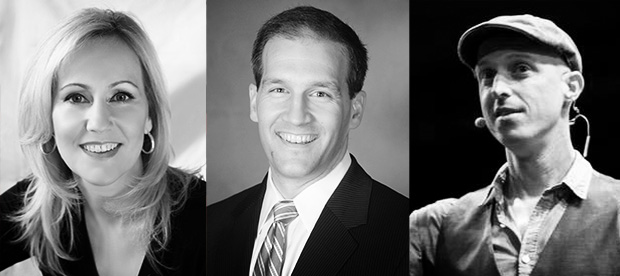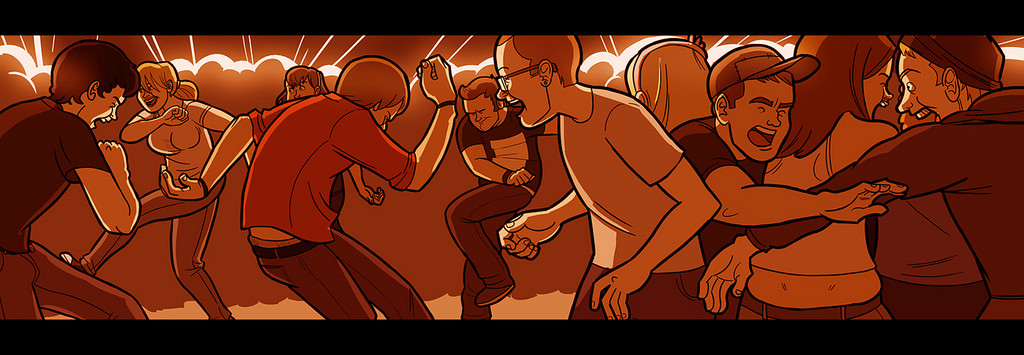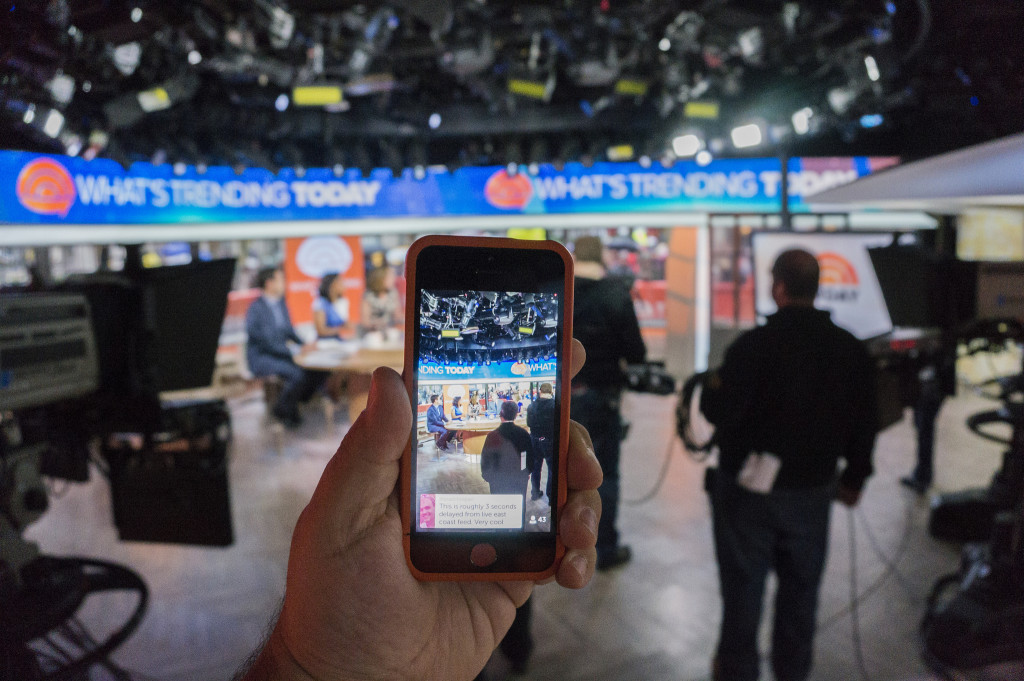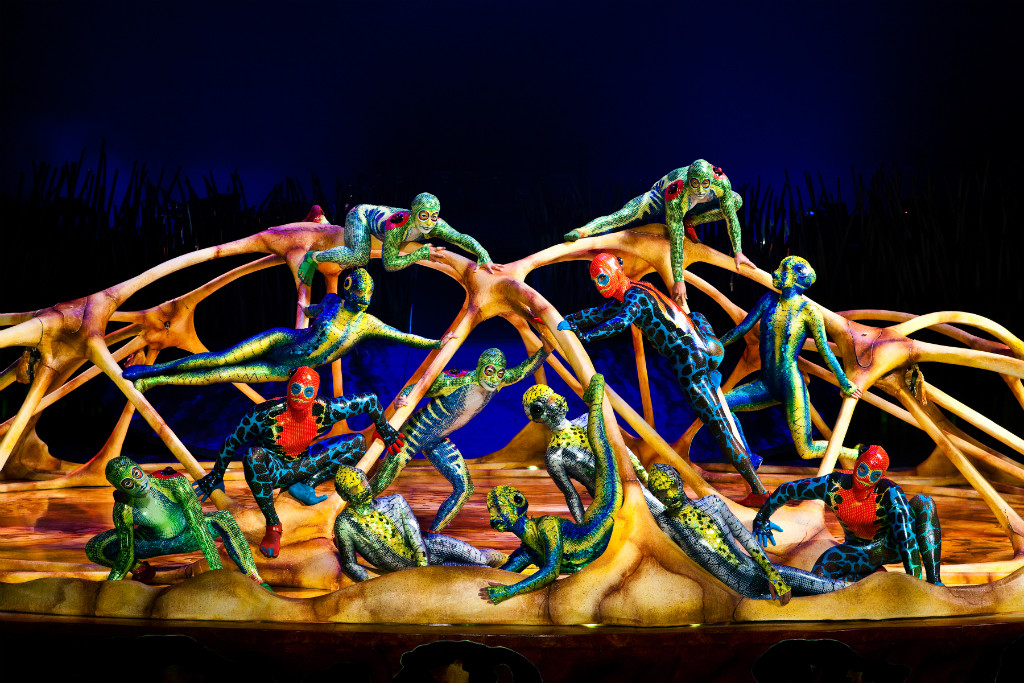Anaheim Convention Center Breaks Ground on Expansion
The Anaheim Convention Center broke ground on its new expansion today, April 21, 2015. When it is completed in summer 2017, there will be an additional 200,000 square feet of flexible event space (100,000 square feet will be column free), along with new loading docks and a climate-controlled connection to the existing center’s second level.
Turner Construction Co. and Populous are providing the design-build services for the expansion.
“We are proud to partner with Turner Construction and Populous as we embark on the seventh expansion of the Anaheim Convention Center,” said Tom Morton, executive director of convention, sports, and entertainment for the City of Anaheim, in a statement. “Our design-build partners provided a concept that is the gold standard in flexible space and will meet the needs of our convention business today as well as into the future. This is a tremendous opportunity for the City of Anaheim to remain a leader in the convention and meeting industry.”
The expansion will provide an economic stimulus to the region by involving local workers during all phases of construction, and will employ 300 trade workers at the peak of construction activity. The expansion will also help Anaheim retain and attract large exhibitions and encourage further tourism to the region and support local hotels and restaurants.
“The renovations at Anaheim Convention Center are an important step in telling a big and powerful story about Anaheim and its people, climate, beauty, and amenities,” said Michael Lockwood, principal at Populous and designer of the renovations. “As one of the city’s anchor buildings, the convention center connects the urban fabric. This renovation is about far more than a singular building. Instead, the renovation will engage with the city’s urban fabric and serve as framework for further connecting civic, sports, and entertainment destinations where people love to be together. We’re grateful to have the opportunity to participate in such a monumental project for the city.”
Check out the video below to see how it will look when it’s completed.
(Image: Anaheim Convention Center)
Announcing Our VenueConnect Keynote Speakers
Our annual conference, VenueConnect, takes place August 1-4 in Baltimore, Maryland, and we’re happy to announce our three keynote speakers.
Betsy Myers
Myers will be our opening keynote speaker and will speak during Part 1 of the Women in Leadership program. She served as a senior adviser to U.S. President Barack Obama’s election campaign. She joined the campaign in January 2007 as the COO tasked with the challenge of building a $100,000,000 organization and established the campaign with a business operational model and customer service mentality.
Curt Cronin, CDR (SEAL), USNR, MBA
Cronin has more than 16 years experience as a U.S. Navy SEAL and is an expert at maximizing human potential and synthesizing the strengths of a team to create unprecedented results in any context. He will lead two sessions at VenueConnect: “Building Unstoppable Teams” and a seminar for venue executives called “Leadership Under Fire.”
Jason Roberts
Roberts’ closing keynote session at this year’s Performing Arts Managers Conference (PAMC) was wildly popular, so we’re bringing him back so that everyone can experience his remarkable story. Roberts is the founder of the Oak Cliff Transit Authority, originator of the Better Block Project, co-founder of the Art Conspiracy and Bike Friendly Oak Cliff, and a former candidate for U.S. Congress. Please read our blog post profile for PAMC to learn more about him and his session.
Please visit the VenueConnect website to learn more about these incredible speakers and to see the rest of our educational lineup. Early-bird registration ends May 1. See you in Baltimore!
Three Rules to Follow in the Mosh Pit
The lead guitarist from the Screaming Trees raised his right hand, held it for brief moment, then strummed out some punk chords, causing the place to transform into shirtless bodies slamming against one another. This was my first mosh pit experience, and I loved it. After that, I sought out every opportunity to mosh or stage dive with fellow music fans. My clothing has been torn, sure, but I’ve never been hurt. That’s because mosh pit fans take care of each other.
Call them codes, rules, or best practices, there are some primary behaviors to embrace when moshing. Over on FasterLouder.com.au, Emily Kelly offers “The Six Golden Rules of Moshpit Etiquette.” Here are three, with quotes attributed to Kelly, to get you started.
1. Pick People Up When They Fall Down
“It is the responsibility of absolutely everyone to do this. If you’re feeling like a particularly sensitive Samaritan, verbally check that they’re okay before returning to your limb flailing.”
2. Know That Proximity Means Responsibility
“Standing on the edge of a pit does not exclude you from its electric little ecosystem. Don’t stand aside and get furious when it spits out sweaty, drunk dudes occasionally and don’t be disgusted when its tentacles attempt to tug you in.”
3. Don’t Crowd Surf When There’s No Music
“The brief rest between songs is a time when people tend to check themselves. Is my wallet still there? Yep, good. Is my ankle okay? Umm, maybe.”
Please check out FasterLouder.com.au to learn the other three rules. You might even consider posting these rules in your venue when you know there’s going to be a high chance of some moshing going on.
(Image: Ben Levin/Creative Commons)
How Should Live-Streaming Apps be Handled?
The live-streaming video app Meerkat made a splash at this year’s SXSW. A few weeks later, Twitter released it’s own live-streaming app called Periscope, which proved to be just as, or more, popular with the social media crowd.
I admit, I love technology. I think new developments should be embraced with an eye toward how they can be used for good. However, progress and new technology come with skepticism, and occasionally fear. After all, new technology—especially the great, innovative variety—is disruptive and often pushes past current boundaries (or policies). It makes me happy, then, to see an organization use an app like Periscope in a positive manner.
The Seattle Reign FC of the National Women’s Soccer League, for example, streamed its whole match against the Portland Pilots via Periscope. While this is a great marketing practice, the issue of money shouldn’t be ignored.
“Given the insane amount of money networks spend for TV broadcast rights, are sports teams even allowed to live stream their own games with an app like Periscope?” Taylor Scoper wrote for GeekWire. “Can fans do the same from their seats? And what other impacts will Meerkat and Periscope have on the sports world?”
Those are fair questions, and Scoper does a great job at detailing the live-streaming policies for fans and reporters from the NBA, NFL, and MLB. If you’re not familiar with the policies, I’ll let you visit his article to learn more. What I want to bring up, though, is a question Scoper asks.
“Think about 70,000 people at an NFL game—even if a small subset of those fans decide to launch a Periscope stream, can the NFL really track down each user and shut down those feeds?” Scoper wrote.
I don’t see this being an issue now, because one would have to hold a phone up for the whole game. Arms get tired. Attention meanders. Still, though, wearables are getting smaller, stronger, better, and more commonplace. For example, you can already take a photo every 30 seconds with a clip-on camera that hardly anyone notices. As technology enables new levels of content capturing from anyone and everyone, venues will have a hard time focusing on specific products, but will need to figure out how to manage the more ambiguous realm of guest intentions.
(Image: Anthony Quintano/Creative Commons)
Sold! Cirque du Soleil to Texas-Based Investor Group
Cirque du Soleil founder, Guy Laliberté, sold his controlling stake in the circus to Texas-based TPG Capital and the China-based Fosun Group on Monday, April 20.
Laliberté will retain 10 percent interest and continue as a creative adviser to the circus company, which will keep its headquarters in Montreal, Quebec. TPG will control 60 percent, Fosun will control 20 percent, and 10 percent will be controlled by the Caisse de dépôt et placement du Québec.
The Fosun Group news is interesting because Cirque wants to increase its presence in Asia.
“We have a Chinese partner who knows the market well, and who has a lot of international connections,” Laliberté said during a news conference. “We have a precise plan that we will be announcing soon. China is a complex market, and we are doing our homework, doing our research, having many consultations, and will soon have a more organized plan.”
Cirque was sold for personal reasons, Laliberté said.
“In all consciousness and with a rigorous personal reflection and corporate reflection, I believe I am making the best decision for Cirque du Soleil and its future, and the best decision for myself and my family,” he said.
Financial terms weren’t released.
(Image: OSA Images)
Do you want to receive a Front Row News weekly digest?
Categories
- Allied (856)
- Architecture (147)
- Arenas (744)
- Career (890)
- Convention Centers (889)
- Education (608)
- Events (1,528)
- Food & Beverage (193)
- Foundation (113)
- Guest Experience (1,482)
- Industry News (2,253)
- Leadership (1,872)
- Marketing (150)
- Membership (1,985)
- Music (212)
- Performing Arts Centers (453)
- Professional Development (398)
- Research (127)
- Safety & Security (425)
- Sports (763)
- Stadiums (607)
- Student (159)
- Technology (515)
- Ticketing (92)
- Touring (82)
- Trends (357)
- Uncategorized (771)
- Universities (216)
- Video (25)
- Young Professional (198)
Twitter Feed
- Twitter feed loading
Recent Posts
- GEODIS Park Selects Allied Universal As Its Preferred Event Services Provider
- Venuworks Appoints Marc Solis as Executive Director of the Fresno Convention and Entertainment Center
- Los Angeles Convention Center Diverts 8,000 Pounds of Wood Waste to Local Foundation Supporting Fire Victims
- Fort Worth Unveils Plans for Phase 2 of Convention Center Transformation
- San Diego Convention Center CEO Announces Retirement After a Decade of Leadership
Categories
- Allied
- Architecture
- Arenas
- Career
- Convention Centers
- Education
- Events
- Food & Beverage
- Foundation
- Guest Experience
- Industry News
- Leadership
- Marketing
- Membership
- Music
- Performing Arts Centers
- Professional Development
- Research
- Safety & Security
- Sports
- Stadiums
- Student
- Technology
- Ticketing
- Touring
- Trends
- Uncategorized
- Universities
- Video
- Young Professional
Archives
- February 2026
- January 2026
- December 2025
- November 2025
- October 2025
- September 2025
- August 2025
- July 2025
- June 2025
- May 2025
- April 2025
- March 2025
- February 2025
- January 2025
- December 2024
- November 2024
- October 2024
- September 2024
- August 2024
- July 2024
- June 2024
- May 2024
- April 2024
- March 2024
- February 2024
- January 2024
- December 2023
- November 2023
- October 2023
- September 2023
- August 2023
- July 2023
- June 2023
- May 2023
- April 2023
- March 2023
- February 2023
- January 2023
- December 2022
- November 2022
- October 2022
- September 2022
- August 2022
- July 2022
- June 2022
- May 2022
- April 2022
- March 2022
- February 2022
- January 2022
- December 2021
- November 2021
- October 2021
- September 2021
- August 2021
- July 2021
- June 2021
- May 2021
- April 2021
- March 2021
- February 2021
- January 2021
- December 2020
- November 2020
- October 2020
- September 2020
- August 2020
- July 2020
- June 2020
- May 2020
- April 2020
- March 2020
- February 2020
- January 2020
- December 2019
- November 2019
- October 2019
- September 2019
- August 2019
- July 2019
- June 2019
- May 2019
- April 2019
- March 2019
- February 2019
- January 2019
- December 2018
- November 2018
- October 2018
- September 2018
- August 2018
- July 2018
- June 2018
- May 2018
- April 2018
- March 2018
- February 2018
- January 2018
- December 2017
- November 2017
- October 2017
- September 2017
- August 2017
- July 2017
- June 2017
- May 2017
- April 2017
- March 2017
- February 2017
- January 2017
- December 2016
- November 2016
- October 2016
- September 2016
- August 2016
- July 2016
- June 2016
- May 2016
- April 2016
- March 2016
- February 2016
- January 2016
- December 2015
- November 2015
- October 2015
- September 2015
- August 2015
- July 2015
- June 2015
- May 2015
- April 2015
- March 2015
- February 2015
- January 2015
- December 2014
- November 2014
- October 2014
- September 2014
- August 2014
- July 2014
- June 2014
- May 2014
- April 2014
- March 2014
- February 2014
- January 2014
- December 2013
- November 2013
- October 2013
- September 2013
- August 2013
- July 2013
- June 2013
- May 2013
- April 2013
- March 2013
- February 2013
- January 2013
- May 2012
- March 2012
- December 2011
- November 2011
- October 2011
Recent Comments
- Frank Bradshaw, Ph.D., CVE on John Meyer, CVE, a Tireless Advocate of Certification for Venue Professionals, Has Died
- Neil Sulkes on Hilary Hartung, Friend to Many in Venue Marketing, Has Left Us
- Jason Parker, CVE on The Devastation of Hurricane Helene and How We Can Support One Another
- Larry Perkins on Touhey Testifies Against Speculative Ticketing Before Congressional Subcommittee
- Peter Secord on Major Players for Planned Elkhart Amphitheater Were in the Mix at VenueConnect





